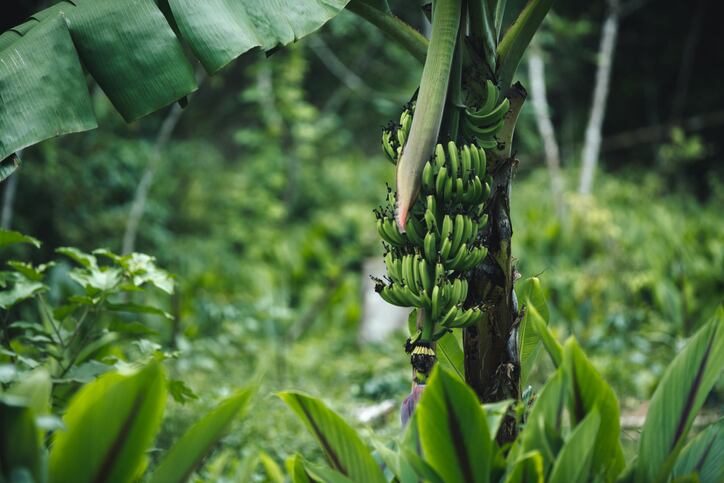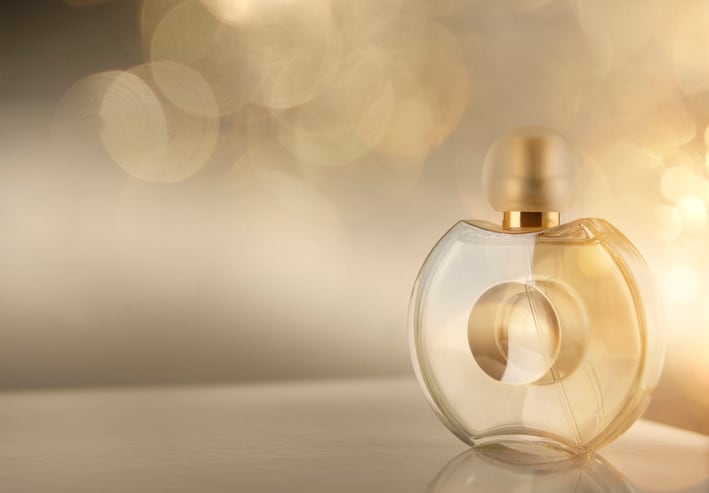As the world edged slowly out of the depths of the COVID-19 pandemic, ongoing political, environmental and financial crises continued to shape businesses. And in fragrances, these instabilities were set to carve out and accelerate an array of trends over the next two years.
CosmeticsDesign-Europe caught up with a number of fragrance experts on the show floor of in-Cosmetics Global in Paris last month to find out more.
Samira Boumédiène, head of global strategic marketing at Eurofragrance: “In general, when you have a crisis, people come back to the past”
Boumédiène said industry today was operating in a market with multiple crises, from the ongoing COVID-19 pandemic to the Ukraine-Russia conflict and rising costs across raw material, gas and transport. And all of this, she said, impacted production but also consumer expectations.
“In general, when you have a crisis, people come back to the past because it’s something that they know and it’s a comfort,” she said. For this reason, nostalgia would be a key trend in fragrance innovation over the next two years, she said, just as it already had been in fashion and food.
“Now, it’s the 2000’s Spice Girls era,” she said. “Last year, we saw a lot of fragrances around vanilla, honey and orange blossom (…) bubble gum was also very trendy last year. But I believe that oriental fragrances with vanilla will come back. All this floral, the CK1 era, is very clean and a little bit hygienic, that will come back too; big floral will also be very important.”
In addition, she said “feel-good perfumes” would take centre stage as consumers looked to integrate fragrance more holistically into their lives.
But as perfume brands and fragrance manufacturers worked to tap into these nostalgia and wellbeing opportunities, Boumédiène said they would be doing so in a financial and political backdrop that was “not easy”.
Eloïse Desroches, communication and marketing project manager at Sozio: “Consumers want more transparency”
Mathilde Cleret, marketing manager at Sozio, said the European fragrance market today – across personal care, home care, aerosols and perfume – was also facing “a lot of restrictions and guidelines” that created additional challenges for industry.
On top of this, she said consumer expectations around health and the environment were rising fast. “It’s a big, big subject and something clients are looking for: really good fragrances that are healthy for you and good for the environment and good for all.”
Eloïse Desroches, communication and marketing project manager at Sozio, agreed: “For fine fragrances, it’s the same because consumers want more transparency and they ask the brand to be really clear about what they put in their perfumes.”
Cleret said that Sozio had, in response, developed its own-label line of clean fragrances with full disclosure on all raw materials used in the formulas – “to be more transparent and to reassure the consumer also”.
Asked what the star fragrance trend would be in the next two years, both said upcycled ingredients.
Victorine Horem, communication manager at TechnicoFlor: “Natural fragrance is nice, but responsible fragrance is better”
Horem agreed the future of fragrances “of course” centred around sustainability and a shift towards formulations that protected the planet and its natural resources.
“To make natural fragrance is nice, but responsible fragrance is better because we have to consume and protect our planet – it’s very, very important today,” she said. “…We can be creative and create totally responsible fragrances.”
Horem said TechniFlo had developed a collection based on upcycled raw materials for toiletries, cosmetics and fine fragrances to address this. And this shift towards upcycling, she said, would continue to trend in the years to come, along with biotechnology.
Perfumers and fragrance manufacturers, she said, would increasingly turn to biotech to create new ingredients and new molecules for more sustainable and more responsible formulations of tomorrow. Aitana Lopez de Carrion, global fine fragrance development manager at CPL Aromas, previously highlighted biotech and smart sourcing as key in the green drive across fragrances.
Hasine Bumin, fragrance evaluator at EPS Fragrances: “We need some innovation that adds value to our fragrances”
Bumin agreed that new technologies would become critical for fragrance developers in the future, as industry raced to stay fresh in such a “fast moving” category.
“We need to add value to our fragrances to become the priority in the market. And how can we do that? We need to improve some technologies, we need some innovation that adds value to our fragrances and that makes our customer’s products more prominent in the market,” she said.
Beyond science like biotech, she said technologies that added to the overall consumer experience of a finished product would also be key.
“People need to experience fragrances in a new way – this will be a new trend also for the technology and innovation side.”
And these efforts, Bumin said, would sit within a wider, longer-term need for natural and ‘natural effect’ fragrances within a raw material crisis and climate change pressures.
Anthony Pegard, aroma-cosmetic laboratory manager for fragrances at Robertet: “Fragrance not just as a smell, but also something else”
Looking at the work within naturals, Pegard said it had become increasingly important to “valorise the ingredients” in a formulation – looking to design fragrance beyond scent.
At Robertet, the team was innovating in this area under what it called its ‘active scent programme’ where it designed fragrances that offered cosmetic activities like blue ray protection via certain plant extracts, for example.
“This is really, for us, our vision of the future of fragrance: fragrance not just as a smell, but also something else.”
Pegard said this concept would also prove important in the development of fragrances to induce emotions – a topic that was set to become “very hot” across industry in the coming months and year. Designing fragrances to create an array of “emotional statements”, he said, would create “big work” for industry.




